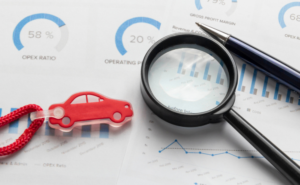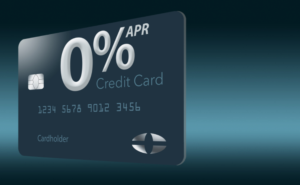Is Annual Credit Report Request Service Legitimate?
Regularly reviewing your credit report can help you identify errors, potential fraud, and suspicious activity. As per federal law, your annual credit report can be obtained free of cost from each of the three major credit bureaus; Experian, Equifax, and TransUnion.
The three credit reporting agencies collectively have a website called ‘AnnualCreditReport.com .’But is it legitimate and safe to use? Imposters used this site in 2013 to access some celebrities’ reports, and numerous scam websites exist impersonating the Annual Credit Report website.
Keep the following in mind before accessing your annual credit report.
Is AnnualCreditReport.com Safe to Use?
Knowing how the website works is necessary to comprehend what precautionary measures AnnualCreditReport.com follows. The site requires you to provide your first and last name, current and previous address, and Social Security number. Remember that your previous address will be required only if you have shifted in the recent year or two.
After logging in with your details, the website asks which annual credit report you want to request. It is up to you to select one, two, or all three reports to view. It is recommended to space out your report requests to do regular interval checks on your annual credit report every few months.
After you select the report you want, the website takes extra steps for your identity verification. You can review and double-check the details entered to ensure that they are correct.
You will then be asked to answer three security questions which will differ depending on your financial situation. For example, the balance remaining on your mortgage when you applied for an auto loan or a city you have previously resided in. Your credit report(s) will only be accessible to you once you successfully answer those questions.
Credit scores are not inclusive of the credit report obtained through the website. However, it can be provided separately at an additional cost from the three credit reporting bureaus; Equifax, Experian, and TransUnion.
You can view your credit score free of cost from websites such as CreditSesame.com and CreditKarma.com. Several renowned credit card companies include a free credit score every month as an added benefit.
AnnualCreditReport.com encrypts your details as you fill out the form and while sending your information to the three credit reporting bureaus. The website has internal and external firewalls to ensure security is in place, as there are electronic, physical, and procedural safeguards for protection.
The disclaimer still remains regarding no guarantee about data storage or transmission being 100% secured. This is all the information available regarding the company’s security features.
How Does AnnualCreditReport.com Protect Your Data?
AnnualCreditReport.com is maintained and perpetuated by Central Source LLC, a company sponsored by the three consumer credit bureaus.
Personal information and details such as your complete official name, Social Security digits, address, and date of birth will need to be shared with AnnualCreditReport.com in order to acquire your annual credit report. Your private details are protected through an encrypted connection between the site’s servers and the device you are using. The SSL certification on the site is indicated by the ‘s’ in the browser’s address bar in the “HTTPS.” These multiple security controls prevent strangers from snooping on the private details sent by you or the website.
Everything is encrypted before sending your information to the relevant credit bureau via AnnualCreditReport.com when you request a copy of your annual credit report.
Furthermore, the credit bureau from which you request your credit report may ask you a few questions to verify your identity. This will prevent others from using AnnualCreditReport.com to acquire a free copy of your report.
Can AnnualCreditReport.com Be Illegally Accessed?
Despite AnnualCreditReport.com’s multiple security enforcement, your credit report can be accessed if an imposter has enough of your personal details. A similar incident occurred in 2013 when perpetrators illegally accessed the credit reports of a few celebrities using a considerable amount of personal information collected from other sources, as reported by TransUnion.
If somebody were to illegally acquire your personal details such as address history, social security number, and date of birth, they would have to answer additional identity verification questions to qualify. They will most likely hit a roadblock if they do not know who your mortgage is held by or the balances on your loans.
How to Recognize Credit Report Scams
A number of websites look similar to AnnualCreditReport.com, which the FTC (Federal Trade Commission) labels as tricksters as ACR is the only website authorized by the FTC. You will notice a minor difference in their URL, a purposely misspelled name, and some unofficial terms like “free report.”
These scam sites will attempt to gather your details or redirect you to other scam websites wanting to sell you something. They may also try to get you to register for an apparently free credit report for which you’ll be charged later.
Be cautious, especially when you are asked to reenter your credit card number or bank details, as it could be used to charge you at the end of the free trial. Verify the website’s security certificate as those with “HTTP” indicate that the site is less secure. Ensure to keep away from websites with grammatical errors or spelling mistakes. Be cautious of calls or emails from those claiming to be representatives of AnnualCreditReport.com or one of the three consumer credit reporting agencies. These companies do not contact customers, so anyone claiming to be them is a scam.
The Bottom Line
Your credit report and activities on your account should be frequently checked and kept a tab on. It is wise to get a free copy of your report from each of the credit bureaus to keep an eye out for fraud. The major credit bureaus give one free copy each year; however, you can request frequent copies of your report if your card has been stolen.
A few credit professionals advise ordering a copy of your report once every four months. You can also get insight into potentially fraudulent activity by doing weekly or monthly credit checks through your credit card company’s website.
A free-of-cost annual credit report is a great tool for users to record their credit history and continually find ways to improve and increase their credit scores. However, with cybercrime on the rise, it is necessary to be vigilant of potential frauds and threats and only obtain your free copy via a credible website.






